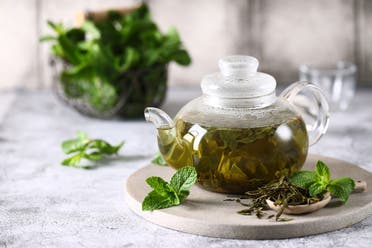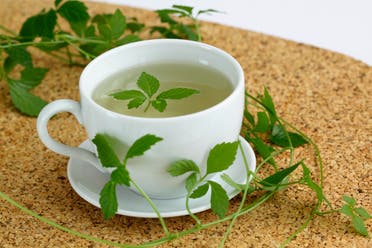Known as the herb of immortality," jiaogulan offers more health benefits than green tea
Chinese herbs that boost energy, lower stress, and improve cognitive function include ginseng and ginkgo biloba.
However, jiaogulan, also known as the "herb of immortality," is a lesser-known herb that is gaining popularity due to its capacity to increase metabolism, lower cholesterol, and reduce inflammation while fostering a longer, healthier lifespan.
Teas made from herbs and dietary supplements
According to the New York Post, jiaogulan, also known as "southern ginseng" or "miracle herb," is an unofficial term for the plant that grows in mountainous and forested areas of Asia and is officially known as Gynostemma pentaphyllum.
Jiaogulan has been used for centuries in folk medicine, but in the last ten years, its use has grown in popularity. Herbal teas and dietary supplements are its main sources.
antioxidant capacity
In this context, Michael Aziz, an internist and specialist in regenerative medicine in New York City, said that 900 milligrams of jiaogulan can be taken daily to reap the benefits of the climbing plant.
The author of The Ageless Revolution added that "Jiaogulan tea has a very high antioxidant capacity," adding that it is eight times higher than that of green tea.

Green tea (iStock)
He also recommended steeping one or two teaspoons of dried jiaogulan tea leaves in 250 ml of water, then straining it before drinking. He explained that its taste is bitter but slightly sweet, while others describe it as "earthy." The bitterness of jiaogulan stems from saponins, organic chemicals believed to be the basis of the plant's health benefits.
Detoxification
For their part, researchers wrote in the January issue of the journal Financial Foods that "Jiaogulan's bitter taste and cooling nature are particularly effective in clearing the body of heat and detoxifying it, making it beneficial for conditions such as viral hepatitis, chronic gastroenteritis, and chronic bronchitis."
They explained that "the sweet taste of jiaogulan nourishes the heart and protects the liver, is better at stimulating qi and blood energy, and is more effective against hyperlipidemia, high blood pressure, fatty liver, insomnia, and headaches."
gybenosides
Jiaogulan contains gybenosides, a type of saponin. Gybenosides are structurally similar to the ginsenosides found in ginseng.
Aziz also explained that gybenosides "stimulate AMP-activated protein kinase, an enzyme that plays a pivotal role in maintaining cellular energy balance. They also have antioxidant effects."
He went on to explain that it "improves insulin signaling, lowers blood pressure, and the function of mitochondria, the human body's cell batteries, which has a positive impact against some of the hallmarks of aging that affect longevity."

Jiaogulan tea (istock)
Possible side effects
He added that jiaogulan is considered safe for consumption, noting that the most common side effects are nausea and diarrhea, while less common ones include vomiting, dizziness, blurred vision, or tinnitus. Therefore, those taking medication should consult their physician before adding jiaogulan to their daily routine, as the herb can interact with other medications.
He concluded by advising diabetics to be careful and adjust their medication with the help of their doctors if they drink large amounts of jiaogulan tea, as it can lower blood sugar levels.

